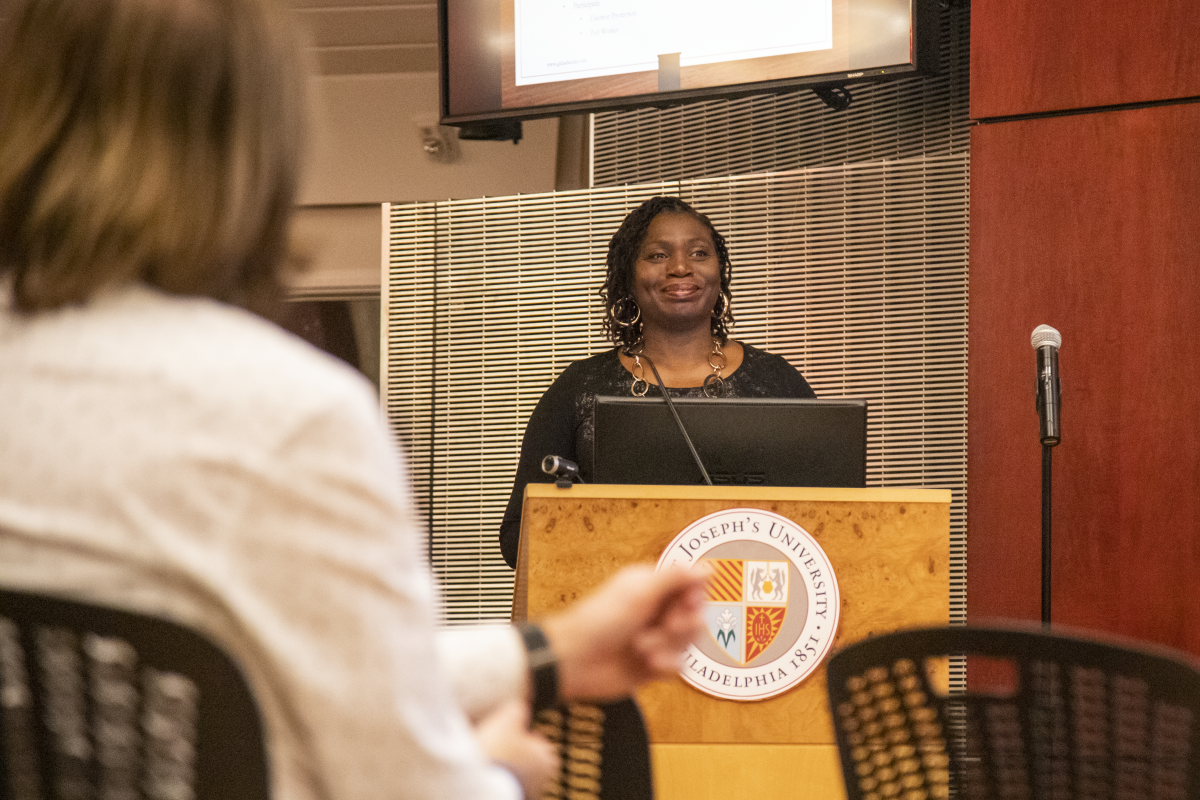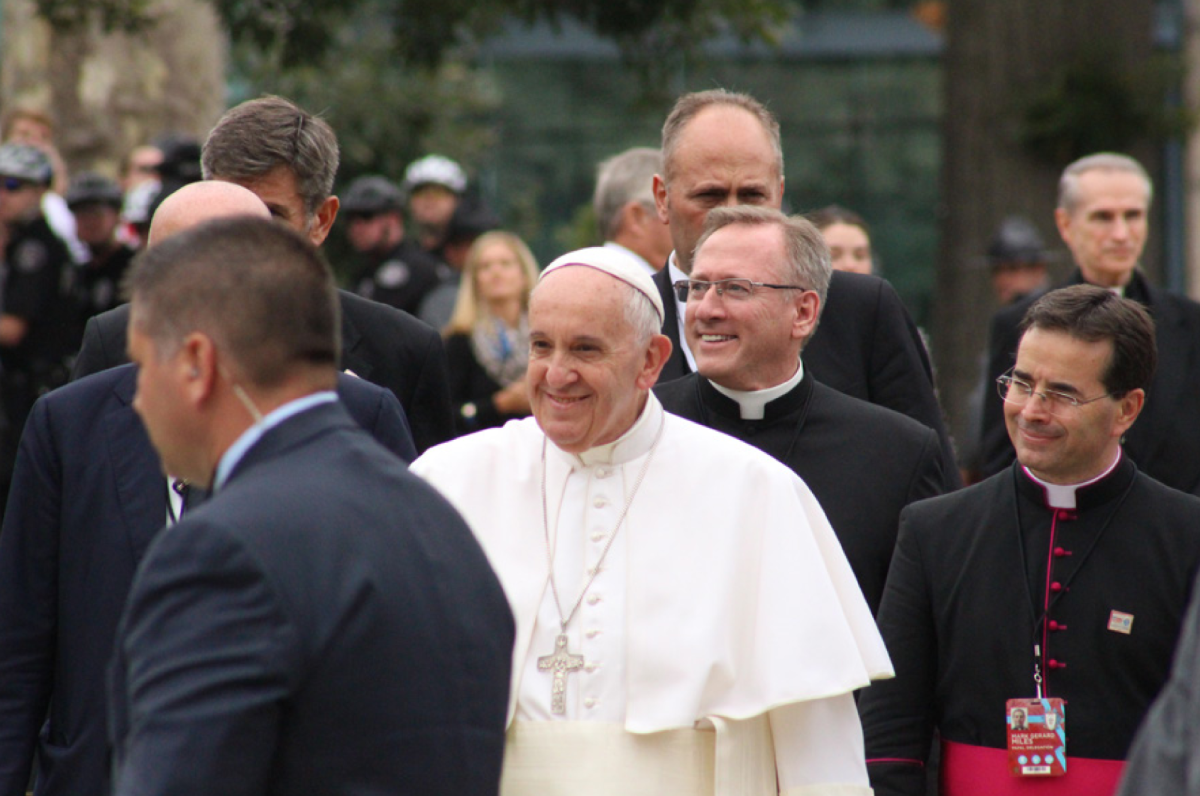Gilda R. Daniels, J.D., a voting rights and election law expert, spoke to members of the St. Joe’s community on Oct. 20 about voter suppression and voting rights in the U.S.
Daniels was the first BIPOC and second woman keynote speaker for the Hon. Joseph N. Nardi Symposium on Law and Justice.
Susan Liebell, Ph.D., Dirk Warren ’50 Sesquicentennial Chair and professor of political science, invited Daniels to campus to speak to students and pre-law alumni, and the event was overseen by Kerin Clapp, J.D., from the SJU Law Alumni Endowment.
Daniels is a professor of law at the University of Baltimore, director of litigation for the Advancement Project National Office and author of “Uncounted: The Crisis of Voter Suppression in America.”
Her book addresses the history of voter suppression against communities of col or, primarily the Black community, in the U.S. and how that correlates with under representation in American government.
Daniels said in an interview with The Hawk it is crucial for everyone to understand the reality of voter suppression in the U.S.
“One of the reasons I wrote the book is because I wanted people to be able to open the book and say, ‘I knew something was going on, I didn’t know what it was, now I do, and I know what I can do about it,’” Daniels said. “So I’m hopeful that the book inspires people to act and to recognize the power that we all have that’s certainly underutilized.”
Liebell has taught Daniels’ book in her classes since its release in January 2020.
Liebell said the combination of approaches Daniels uses in “Uncounted” to explain and demonstrate voter suppression is why the book is such an asset in the classroom.
“The method of the book is to combine the personable, the principled and the legal, and sometimes the principled and the legal are really hard to understand,” Liebell said. “She uses her grandmother and these [other] people to explain the principles and explain the legal hurdles; that just seems to reach and impact our students considerably.”
Damaris Gimenez ’23, a philosophy major and a member of the Law Exploration Advancing Diversity (LEAD) program, which supports students of color interested in law, said she read “Uncounted” in Liebell’s class titled Constitution Law: Rights and Civil Liberties.
Gimenez said prior to reading the book and coming to Daniels’ discussion, she had a different idea of what voter suppression in the U.S. looked like.
“Mostly I thought about [voter suppression] as a Civil Rights thing you learned about in history,” Gimenez said.
But, according to Gimenez, reading “Uncounted” allowed her to understand the current situation of voter suppression in a new way.
“[Daniels] made voting suppression very easy to understand for the regular civilian,” Gimenez said. “You don’t know all the minute details of how much they’re [legislators] suppressing the vote, but she broke it down in very common language.”
Although she has not read “Uncounted” in Liebell’s class, Daniella Campos ’23, an international relations and public policy double major, helped Liebell produce an episode of her podcast about the book for her program with the New Books Network.
Campos, also a member of the LEAD program, said she was very excited to hear Daniels speak on the reality of voter suppression in the U.S. because voting is crucial for a successful democratic system of government.
“In you doing your job and voting, you’re ensuring that you are being represented in the best possible way you know how,” Campos said. “Voting is a right you are given that is essential to a democracy––in order to have democracy you need to have fair and free elections.”
At the end of her lecture, Daniels left the audience with four steps to take away from her presentation: educate, legislate, litigate and participate. These steps encouraged the audience to educate themselves on the voting process, learn about government initiatives for voting, partner with voting rights organizations and participate in elections.
Liebell said having these action steps included in the book and ending the lecture on this note resonated with her.
“I found her [Daniels] personally inspiring, and it was my hope that students would walk away with some of that inspiration.”









































